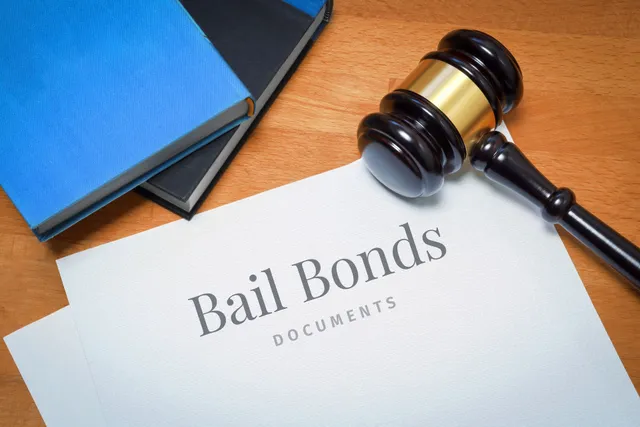What Is an Unsecured Bond?
An unsecured bond is a type of bail where a defendant is released from custody without paying any money upfront. Instead, the defendant signs an agreement promising to appear in court and to pay the full bail amount if they fail to appear.
Unlike a cash bond or surety bond, no immediate payment or collateral is required at the time of release. However, the defendant is legally obligated to pay if they miss court.
How Does an Unsecured Bond Work?
1. Arrest and Bail Hearing – After an arrest, the judge reviews the case and decides if the defendant qualifies for an unsecured bond.
2. Court Agreement – The defendant signs a bond agreement stating they will appear for all hearings.
3. Release from Custody – No money is paid at the time of release. The defendant is trusted to comply with all court orders.
4. If the Defendant Fails to Appear – The full bail amount becomes due immediately. The court may also issue a bench warrant for arrest.
When Is an Unsecured Bond Granted?
Judges typically grant unsecured bonds when:
- The charges are non-violent or low-level
- The defendant has strong community ties (job, family, residence)
- The defendant has no significant criminal record
- The defendant has a history of appearing in court as required
Pros and Cons of an Unsecured Bond
Benefits:
- No upfront cost for release
- Faster return to home and work
- Less financial burden compared to other bail types
Risks:
- If the defendant fails to appear, they must pay the full bail amount
- May not be granted in serious or high-risk cases
How Is an Unsecured Bond Different From Release on Own Recognizance (ROR)?
While both allow release without upfront payment:
- ROR relies only on a defendant’s promise to return, with no financial obligation unless new charges arise.
- Unsecured Bond creates a financial obligation—if the defendant fails to appear, they must pay the bail amount set by the court.
When to Contact a Bail Bond Agent
If a judge denies an unsecured bond and sets a secured bail instead, a bail bond agent can help. With a bail bond, the defendant only pays a non-refundable fee—usually 10% of the bail amount—instead of paying the full amount to the court.
Need Help With Bail?
If you or a loved one has been arrested and an unsecured bond is not available, our licensed bail agents can provide fast, affordable solutions. We’re available 24/7 to answer your questions and help you secure release.

need help?
Our pre-trail release expertsare available 24/7 and areready to help secure yourfreedom.
Call us nowLearn more about best california bail bonds
Have questions?
Our pre-trail release experts are available 24/7 and are ready to help secure your freedom.





